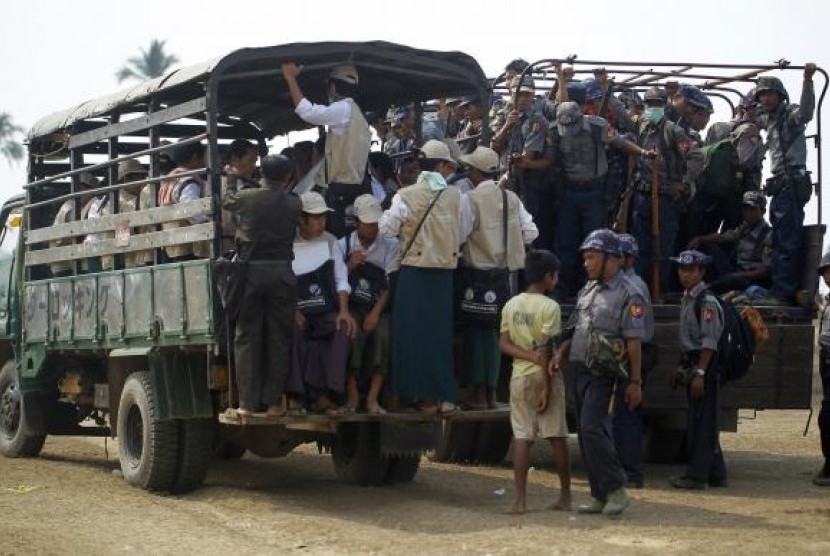REPUBLIKA.CO.ID, YANGON - A group of women dressed in green sarong-like longyis and simple white blouses stand around a table piled with census forms, entering neat notations on spreadsheets by hand.
The women will have to go through 37,579 family census forms, according to officials, using calculators to tally the total numbers because they have no access to computers.
The scene underscores the challenges of carrying out a census in this poor and sprawling, predominantly Buddhist nation. It was supposed to end last Thursday, but was extended on Saturday until the end of May, due to "technical and logistical problems".
The census - the first in three decades - has long been mired in controversy, much of it concerning the counting of Rohingya - Muslims who live in western Rakhine state and often described by the United Nations as one of the most persecuted minorities in the world.
Officials say some 100,000 school teachers have fanned out across Myanmar on foot collecting data for the census, expected to count between 48 million and 65 million citizens.
On April 10, on what was supposed to be the final day of the census, volunteers went door-to-door in Yangon, Myanmar's commercial capital, racing to gather data for a census estimated by rights groups and other groups to cost 74 million USD.
Trucks with loudspeakers blared reminders for people to be counted and shops, buildings, ferries and buses were plastered with posters encouraging people to take part. Susu Win, a volunteer tallying numbers in Yangon, said she worked 12 hours a day and interviewed, on average, 100 families.
"The biggest problem is that we had to climb eight, nine floors in four to five buildings a day with no elevators," she said.



